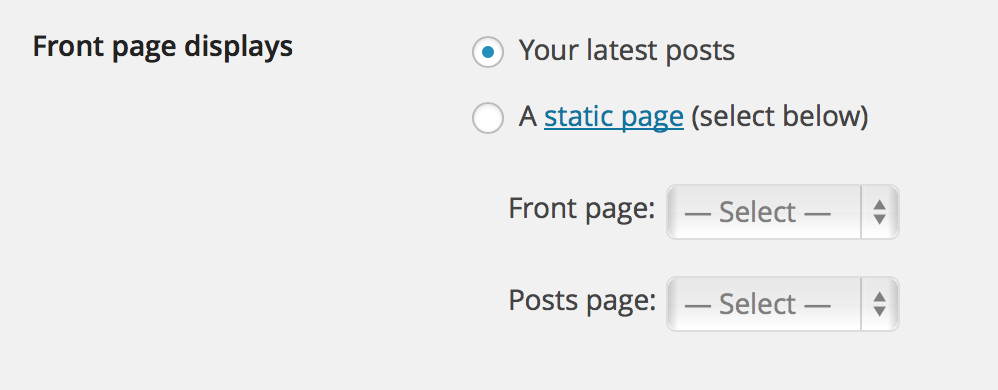On a single custom post type (for example), you can see the post meta.
However on your homepage archive loop, you cannot because the theme uses a different template for this. Check out Template Hierarchy.
The "home" page in _s is governed by the "index.php" template. In which we see:
get_template_part( 'content', get_post_format() );
Since there aren't any custom post format templates for content (ie: content-gallery.php, content-quote.php, etc) we know to look at regular old content.php
The template for content.php looks like:
<?php
/**
* @package _S
*/
?>
<article id="post-<?php the_ID(); ?>" <?php post_class(); ?>>
<header class="entry-header">
<h1 class="entry-title"><a href="<?php the_permalink(); ?>" title="<?php echo esc_attr( sprintf( __( 'Permalink to %s', '_S' ), the_title_attribute( 'echo=0' ) ) ); ?>" rel="bookmark"><?php the_title(); ?></a></h1>
<?php if ( 'post' == get_post_type() ) : ?>
<div class="entry-meta">
<?php _s_posted_on(); ?>
</div><!-- .entry-meta -->
<?php endif; ?>
</header><!-- .entry-header -->
<?php if ( is_search() ) : // Only display Excerpts for Search ?>
<div class="entry-summary">
<?php the_excerpt(); ?>
</div><!-- .entry-summary -->
<?php else : ?>
<div class="entry-content">
<?php the_content( __( 'Continue reading <span class="meta-nav">→</span>', '_S' ) ); ?>
<?php wp_link_pages( array( 'before' => '<div class="page-links">' . __( 'Pages:', '_S' ), 'after' => '</div>' ) ); ?>
</div><!-- .entry-content -->
<?php endif; ?>
<footer class="entry-meta">
<?php if ( 'post' == get_post_type() ) : // Hide category and tag text for pages on Search ?>
<?php
/* translators: used between list items, there is a space after the comma */
$categories_list = get_the_category_list( __( ', ', '_S' ) );
if ( $categories_list && _s_categorized_blog() ) :
?>
<span class="cat-links">
<?php printf( __( 'Posted in %1$s', '_S' ), $categories_list ); ?>
</span>
<?php endif; // End if categories ?>
<?php
/* translators: used between list items, there is a space after the comma */
$tags_list = get_the_tag_list( '', __( ', ', '_S' ) );
if ( $tags_list ) :
?>
<span class="sep"> | </span>
<span class="tags-links">
<?php printf( __( 'Tagged %1$s', '_S' ), $tags_list ); ?>
</span>
<?php endif; // End if $tags_list ?>
<?php endif; // End if 'post' == get_post_type() ?>
<?php if ( ! post_password_required() && ( comments_open() || '0' != get_comments_number() ) ) : ?>
<span class="sep"> | </span>
<span class="comments-link"><?php comments_popup_link( __( 'Leave a comment', '_S' ), __( '1 Comment', '_S' ), __( '% Comments', '_S' ) ); ?></span>
<?php endif; ?>
<?php edit_post_link( __( 'Edit', '_S' ), '<span class="sep"> | </span><span class="edit-link">', '</span>' ); ?>
</footer><!-- .entry-meta -->
</article><!-- #post-## -->
You should be able to see pretty clearly that the post meta function _s_posted_on() is wrapped in a conditional if ( 'post' == get_post_type() ) :. _s is usually meant to be directly customized (instead of child themed) so you'll want to go ahead and either remove or modify that conditional to meet your needs. Removing it will show the meta everywhere the content.php template is called. Or you can modify it so that it works for both posts and your review post type (I'm assuming here is called "movie-review", but change to suit):
if ( in_array( get_post_type(), array( 'post, 'movie_reviews' ) ) ) :

